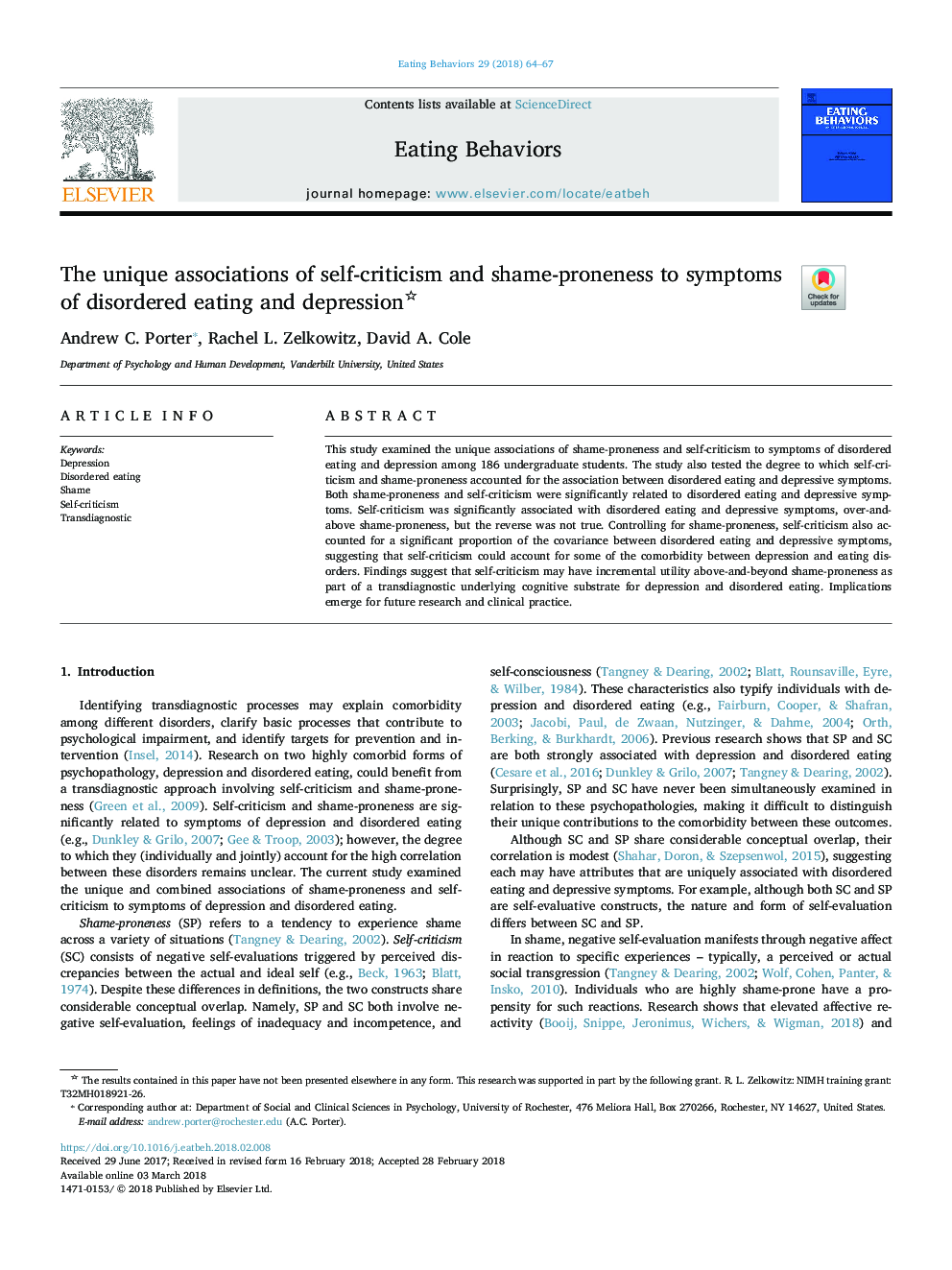| Article ID | Journal | Published Year | Pages | File Type |
|---|---|---|---|---|
| 7264917 | Eating Behaviors | 2018 | 4 Pages |
Abstract
This study examined the unique associations of shame-proneness and self-criticism to symptoms of disordered eating and depression among 186 undergraduate students. The study also tested the degree to which self-criticism and shame-proneness accounted for the association between disordered eating and depressive symptoms. Both shame-proneness and self-criticism were significantly related to disordered eating and depressive symptoms. Self-criticism was significantly associated with disordered eating and depressive symptoms, over-and-above shame-proneness, but the reverse was not true. Controlling for shame-proneness, self-criticism also accounted for a significant proportion of the covariance between disordered eating and depressive symptoms, suggesting that self-criticism could account for some of the comorbidity between depression and eating disorders. Findings suggest that self-criticism may have incremental utility above-and-beyond shame-proneness as part of a transdiagnostic underlying cognitive substrate for depression and disordered eating. Implications emerge for future research and clinical practice.
Related Topics
Life Sciences
Neuroscience
Behavioral Neuroscience
Authors
Andrew C. Porter, Rachel L. Zelkowitz, David A. Cole,
